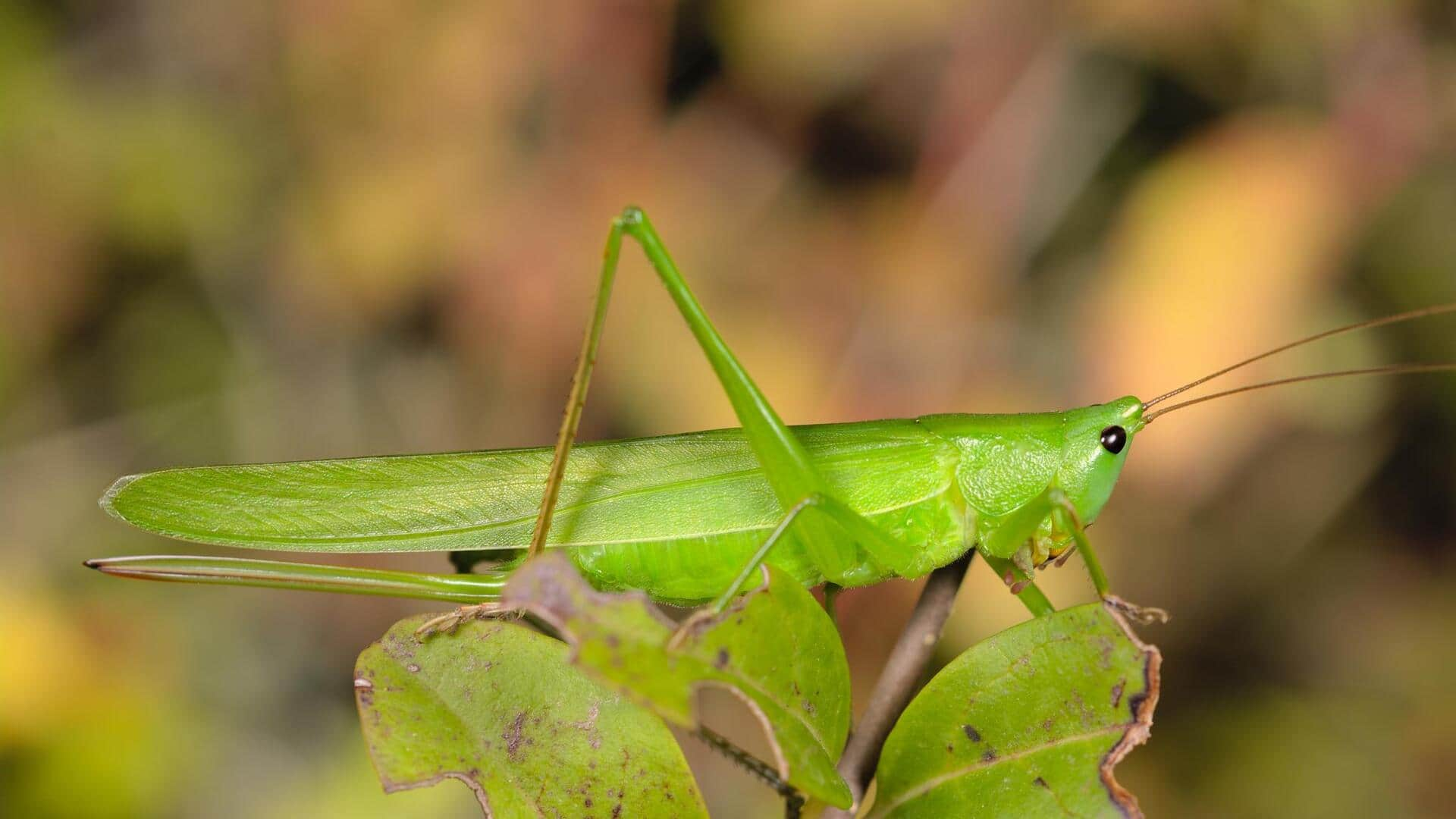
Grasshoppers might be healthy substitute for your fish meal: Study
What's the story
As the world's population continues to expand, traditional livestock farming is putting a significant strain on our environment. This has led to an increased interest in alternative protein sources.
One such source that is gaining attention is edible insects, particularly grasshoppers.
These insects are abundant in countries like Cameroon (in Central Africa) and offer essential nutrients such as proteins, amino acids, and minerals crucial for health and growth.
Research insights
Study explores nutritional benefits
A study conducted by the University of Dschang in Cameroon, and published in the journal Food Science of Animal Products, investigated the nutritional benefits of Ruspolia nitidula, a type of grasshopper.
The research focused on the effects of replacing traditional Clupea harengus fish meal with Ruspolia nitidula grasshopper meal, in rat diets over a period of 12 weeks.
The study aimed to assess this insect meal's potential as an alternative protein source.
Health benefits
Improved health in rats
The study found that substituting fish meal with grasshopper meal led to significant health improvements in rats.
Rats on the grasshopper diet showed enhanced libido, better sleep quality, and superior hair condition compared to those on fish meal or protein-deficient diets.
Additionally, the grasshopper-fed rats exhibited greater body weight gain, indicating overall better health and nutrition.
These findings highlight the potential of grasshopper meal as a sustainable and nutritionally superior source.
Potential implications
Grasshopper meal could address human malnutrition
Dr. Ngnaniyyi Abdoul, the study's lead researcher, stated that their findings highlight the significant potential of edible insects like Ruspolia nitidula as alternative protein sources.
He further noted that the grasshopper meal not only meets nutritional needs but also offers substantial health benefits.
This research suggests that beyond animal feed, grasshopper meal could play a role in addressing human malnutrition, particularly in low-resource settings.